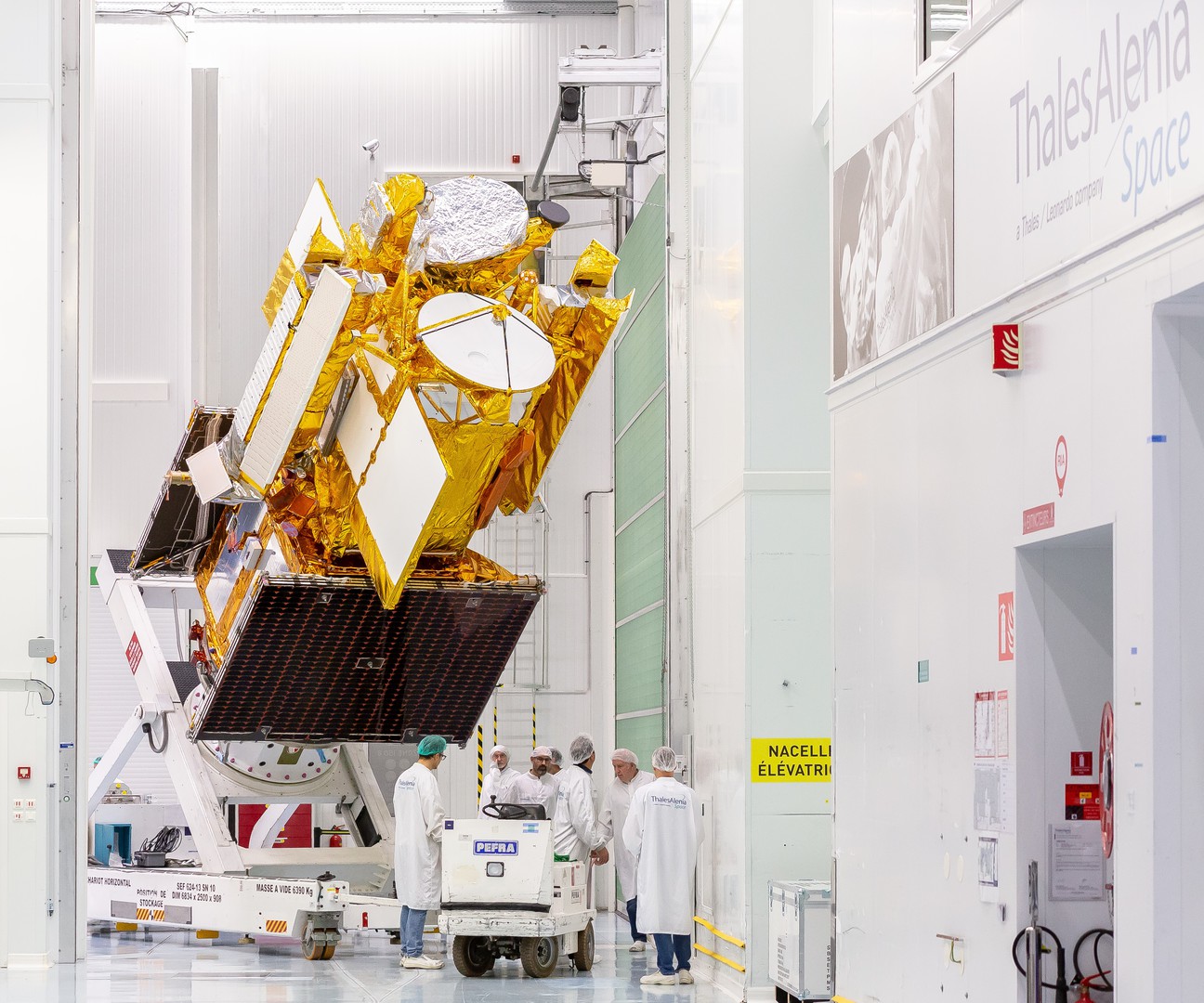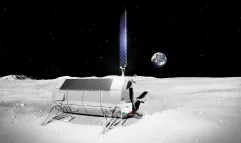A Thales Alenia Space/Delfox collaboration
Space debris proliferation
According to the European Space Agency, there are over 130 million pieces of debris (defunct human-made objects) in orbit, including 36,500 larger than 10 centimeters. Forever swirling around our planet, these fragments pose a real threat to the space industry’s future.
Just as Thales Alenia Space conducts programs to monitor Earth’s environment, we’re also preventing debris and protecting the space environment.

Artistic view © ESA
Given the exponential increase in the number of satellites orbited, we need solutions to limit the huge amount of “space junk”.
Thales Alenia Space has long been working on ways to mitigate the debris issue. Our experts helped the French space agency CNES and other partners define a new national law to reduce orbital debris, which will likely be replicated internationally.

SWOT © Thales Alenia Space/Imag[IN]
The SWOT satellite is a major example. A joint mission between CNES and NASA, this French-US satellite, mostly built by Thales Alenia Space in cooperation with the Jet Propulsion Laboratory, is set to revolutionize oceanography and continental hydrology. Successfully launched in December 2022, SWOT features a controlled atmospheric reentry subsystem, which means no debris will be created when it reaches end-of-life.
Our company is also developing spacecraft dedicated to on-orbit servicing, capable of performing a wide range of robotic tasks in orbit, from inspection and maintenance to refueling and life extension. These new spacecraft are a veritable “Swiss Army knife” and will help make space more environmentally-friendly.

On orbit servicing © Thales Alenia Space
Smart Collision avoidance
This is the third area we’re working on. Thales Alenia Space offers satellite systems with greater autonomy, a key competitiveness driver. Artificial intelligence can be an effective way to increase autonomy, providing valuable decision support for preventive management of in-orbit failures, cyberattacks and potential collisions.
Thales Alenia Space and AI startup Delfox, which specializes in decision autonomy through deep reinforcement learning, have combined their complementary areas of expertise on the Smart Collision Avoidance project. The goal is to develop a solution that will prevent in-space collisions.
More sustainable space missions

Artistic view © iStock
Effective and responsive management of in-orbit collision risks is needed to protect our satellites, their missions and the space environment. Currently, managing these risks relies on slow, repetitive processes and manual procedures. We therefore need to develop technologies that will help us automate collision avoidance maneuvers and reduce the impact of space missions on the environment.
This is the idea behind the Smart Collision Avoidance project, which Thales Alenia Space is pursuing with Delfox.
Launched in October 2022, the project is based on the interaction between our mission analysis simulator and Delfox’s learning agent — a core component of its AI solutions.
The project is divided into two parts. The first involves co-developing a proof-of-concept demonstrator to solve issues at two key phases in the life of a geostationary satellite with electric propulsion:
- Orbital positioning
- Stationkeeping
After the co-development phase, this type of solution could be used to meet the emerging needs of new constellations.


